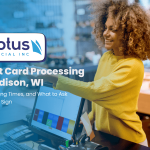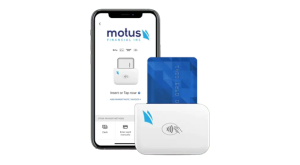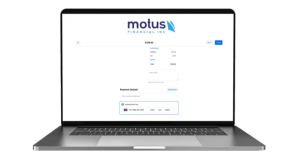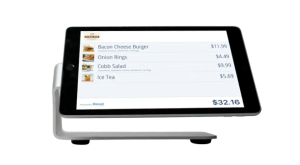How Does Payment Processing Actually Work? A Simple Breakdown
Whenever a customer taps their card, checks out online, or waves a phone near a terminal, something incredibly complex happens in a matter of seconds. Behind that moment lies an entire system of networks, financial institutions, and technologies all working together to approve the transaction, move funds, and make sure you — the business owner — get paid. This invisible engine of commerce is called payment processing.
At Motus Financial, we believe it’s not enough to just offer solutions — we want our clients to understand the process. When you know how payment processing works, you’re better equipped to choose the right tools, protect your business from fraud, and offer the most seamless experience possible to your customers.
Let’s dive deeper into how this works, why it matters, and what it means for businesses operating in GBP or across borders.
What is Payment Processing and Why is It Important for Your Business?

Payment processing is the system that allows money to move from a customer to a business through electronic methods. This includes credit cards, debit cards, digital wallets like Apple Pay or Google Pay, and even buy-now-pay-later options. It sounds simple, but the system involves multiple players, each with its own set of responsibilities.
For businesses, the importance of payment processing can’t be overstated. The smoother the process, the better the customer experience. Delays, failed transactions, or security issues can lead to lost sales and damaged reputation. Fast, secure, and reliable payment processing gives customers confidence in your business and supports your growth.
For merchants, it’s not just about accepting money — it’s about building trust, reducing friction at checkout, improving cash flow, and opening doors to global markets. With Motus Financial, you’re backed by industry expertise, robust technology, and personalized support that make payment processing work seamlessly in the background.
The Invisible Path Every Transaction Takes
Let’s imagine a customer walks into your shop or visits your online store. They pick an item, click checkout, and pay with their credit card. Here’s what happens, invisibly, in the blink of an eye:
The card information is securely captured and encrypted, whether it’s swiped, tapped, or typed in online. That data is then routed to a payment processor, which is responsible for handling and securing the transaction details. This processor sends a request to the customer’s bank, asking if the funds are available and whether the transaction is approved.
The customer’s bank, also called the issuing bank, either approves or declines the transaction based on several factors like available balance, fraud checks, and account status. If approved, the authorization flows back through the network, confirming to the merchant that they can go ahead with fulfilling the order.
Once the authorization is in place, the transaction is “settled.” This means the funds are transferred from the customer’s bank to your bank — often referred to as the acquiring bank. The funds are deposited into your merchant account, typically within one to three business days.
This whole process involves several layers of encryption, authentication, and verification — all of which happen in just a few seconds. It may look easy, but it’s powered by sophisticated systems designed to ensure speed, accuracy, and security.
Who Are the Key Players in Payment Processing?

Every transaction involves more than just the customer and the business. Behind the scenes, a network of intermediaries work together to make the payment go through.
First, you have the customer, or the cardholder, who initiates the purchase. Then there’s you — the merchant — who accepts the payment. You partner with an acquiring bank, which helps you receive the funds and manage your merchant account.
Next comes the payment gateway, especially important for online transactions. It acts as a secure portal that collects and encrypts the payment data before passing it to the processor. The payment processor takes on the heavy lifting of routing the transaction through the proper channels.
Card networks like Visa, Mastercard, or American Express facilitate communication between the customer’s bank and your acquiring bank. They make sure everyone follows the rules and confirm that the transaction is valid. Finally, the issuing bank, which is the customer’s bank, authorizes or declines the payment.
When you use Motus Financial, we help coordinate and manage all these players on your behalf, so you don’t need to worry about technical complexities. Our systems are designed to make all these layers work together smoothly.
Security and Compliance: How Your Payments Stay Protected

Security is central to every payment. Customers trust you with sensitive information, and it’s your responsibility to handle it properly — but thankfully, much of that responsibility is taken care of by your payment processor.
Encryption ensures that card data is unreadable to anyone who tries to intercept it. Tokenization takes security a step further by replacing actual card data with randomly generated values (called tokens), which are useless to hackers. This way, even if your system is compromised, the data remains protected.
Compliance with PCI DSS — the Payment Card Industry Data Security Standard — is also crucial. It ensures that all systems handling cardholder data follow best practices in cybersecurity, access control, and encryption. At Motus Financial, we help businesses stay compliant and reduce their PCI scope through secure integrations and up-to-date tools.
In addition to these technical safeguards, fraud detection and prevention mechanisms analyze transaction behavior in real time. Machine learning models look for suspicious patterns, such as repeated failed transactions, location mismatches, or unrecognized IP addresses. If something looks off, the transaction is flagged or stopped before any damage is done.
Read also:- Why Your Professional Service Needs Unique Payment Processing
Understanding Fees and Costs Involved
There are a few fees associated with accepting electronic payments. The first is the interchange fee, paid to the issuing bank for each transaction. This fee compensates the bank for taking on the risk of fronting the money and dealing with fraud protection.
Then there are assessment fees, which are paid to the card networks. These are relatively small and standard for all businesses.
The third type is the processing fee, charged by the payment processor or acquirer. This covers the cost of using their system, technology, and support. Some processors also charge monthly fees, gateway fees, or other services charges depending on the business model.
One key advantage of working with Motus Financial is transparency. We break down the fees for you clearly and work to reduce your costs where possible — especially for small and medium-sized businesses that need predictability and control over their expenses.
Online vs In-Person Payments: What’s the Difference?
While the core process is similar, online and in-person payments have key differences that matter to your business.
In-person payments involve card readers, point-of-sale systems, and direct customer interaction. These transactions tend to be less risky because the card is physically present. Most use chip and PIN or contactless technology, making them quick and efficient.
Online payments, on the other hand, require payment gateways and stronger security. The card isn’t present, so fraud risk is higher. To combat this, online systems use address verification (AVS), 3D Secure authentication, and other checks to ensure the transaction is legitimate.
Motus Financial supports both environments and offers tailored solutions whether you’re running a high-street shop, an e-commerce platform, or a hybrid of the two. We ensure every customer interaction, whether physical or digital, is smooth and secure.
Payment Processing Made Simple with Motus Financial
What is Payment Processing?
Payment processing is the behind-the-scenes system that moves money securely from your customer’s card or digital wallet into your business account. It involves multiple players — including banks, card networks, and processors — all working in seconds to complete each transaction.
Why It Matters for Your Business
Smooth payment processing means faster checkouts, better customer satisfaction, and fewer lost sales due to delays or declines. At Motus Financial, we provide secure, reliable systems that help you build trust and improve cash flow.
Security You Can Rely On
We use advanced encryption, tokenization, and fraud detection tools to keep sensitive data safe. Plus, we help businesses stay PCI DSS compliant to reduce risks and protect their reputation.
Designed for Every Business
Whether you operate in-person, online, or across borders, our solutions support GBP settlement, recurring billing, and multiple payment types. We even integrate with your accounting and CRM tools for smoother operations.
Recurring Billing and Subscription Payments
Recurring billing is becoming a preferred model in many industries. From gyms and SaaS businesses to subscription boxes and digital content providers, having predictable monthly income is a game-changer.
-
Secure Credential Storage – Tokenization replaces sensitive card data with a secure token, reducing risk of data breaches.
-
Automatic Recurring Billing – Set up regular payments (monthly, quarterly, annually) without needing to re-collect payment info.
-
Customer-Friendly Experience – Customers are charge automatically and receive notifications, enhancing trust and transparency.
-
Retry Logic for Failed Payments – Automatically retries failed transactions, reducing the risk of missed revenue.
-
Card Expiry Management – Handles expired cards through automatic updates or customer prompts to ensure continued service.
-
GBP Compatibility – Fully supports recurring billing in GBP, making it ideal based subscription businesses.
-
Simplified Billing Operations – No manual invoicing or chasing payments, freeing up time for business growth.
Read it also:- How Secure Is E-commerce Payment Processing? What You Need to Know
Avoiding and Managing Chargebacks

Chargebacks occur when a customer disputes a transaction with their card issuer. This could be due to suspected fraud, a misunderstanding, or a product issue. When a chargeback is initiated, the funds are withdrawn from your account and held until the case is resolved.
This can be frustrating and costly, especially if it happens often. To prevent chargebacks, make sure your policies are clear, your product descriptions are accurate, and your delivery systems are reliable. Keep records of all sales, shipments, and communications.
If you do face a chargeback, Motus Financial provides guidance and documentation tools to help you respond effectively. We’ll support you in building a strong case to reclaim funds and reduce the chances of future disputes.
Why Payment Processing Is a Strategic Tool
Payment processing isn’t just about moving money — it’s a vital part of your business strategy. A well-designed system gives you more than just functionality. It offers insight, improves operations, and enhances customer loyalty.
With the right processor, you gain access to detailed reports that show how your business is performing. You can track daily sales, analyze trends, compare performance across locations, and spot areas for improvement.
Flexible payment processing also means you can adapt to changing customer behavior. Want to add Apple Pay? Accept recurring billing? Launch an online shop? All of that depends on your processor’s capabilities — and at Motus Financial, we make it easy to upgrade or adapt as your needs evolve.
Contact Us – Let’s Talk Payments
Whether you’re just getting start with card payments or want to take your existing system to the next level, we’re here to help. At Motus Financial, our mission is to make payment processing simple, reliable, and built for your business.
Reach out to us today to learn how we can support you with GBP settlement, lower fees, improved checkout experiences, and robust security.
Contact Information
📞 Phone: (608) 819-8666
🌐 Website: https://motuscc.com/








 Our POS systems are designed to streamline in-store transactions. With features like inventory management, sales reporting, and customer tracking, our POS solutions help you run your business more efficiently. Our terminals are compatible with various payment methods, including chip cards, contactless payments, and mobile wallets.
Our POS systems are designed to streamline in-store transactions. With features like inventory management, sales reporting, and customer tracking, our POS solutions help you run your business more efficiently. Our terminals are compatible with various payment methods, including chip cards, contactless payments, and mobile wallets.
